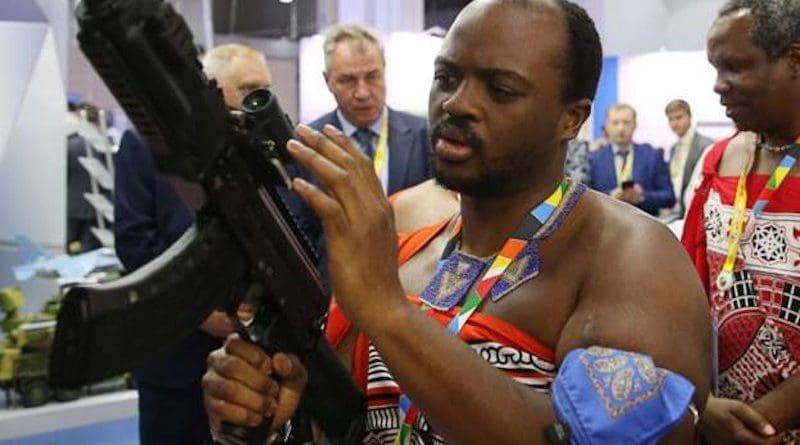Protests Still Engulf The Kingless African Kingdom – OpEd
In a small landlocked African nation of about 1.3 million people, the demand for good governance and better sustainable development by pro-democracy and development-conscious groups have driven King Mswati III of Eswatini into political exile.
King Mswati III, who came to the throne 35 years ago, runs absolute monarchy and rules by decree. His critics accuse the 53-year-old monarch, and his 15 wives, of leading a widely lavish lifestyle and treating opponents harshly.Official historical documents indicate that he was crowned in 1986, at the age of 18. His expensive taste, from cars and planes to houses, has angered Eswatini citizens, many who live below the poverty line.
This is not the first time the people have protested against the king – in 2019, civil servants went on strike, accusing Mswati of siphoning money from public coffers for his own use.
Since his disappearance from power, there have been several measures to deal with the violent protests announced by the government. That however, the government has vehemently denied disappearance of their leader. His whereabouts still not disclosed.Over the weekend, Eswatini acting Prime Minister Themba Masuku said a Southern African Development Community (SADC) Organ on Politics, Defence and Security (Troika) delegation had arrived on fact-finding mission and, to assist in ensuring peace following violent protests which resulted in damage to property and loss of lives.
The Troika was led by Botswana’s Minister of International Affairs and Cooperation Lemogang Kwape.
“SADC stands ready to support the people of the Kingdom of Eswatini in their quest to bring peace and calm that will lead to the socio-economic development of this country, something that we in the region cherish. We look forward to a candid engagement with all the stakeholders. We will interact with the government and then proceed to interact with civil society,” Kwape said.
Eswatini acting Prime Minister Themba Masuku said he met the SADC delegation on Sunday. “It is our goal for the country, as shared by the founding principles of SADC, that we and the region always maintain peace and stability for sustainable economic growth and prosperity. Government has set up a team, led by the minister of foreign affairs to work with the troika and ensure that these engagements are sustained,” Themba Masuku said.
The Troika had preliminary engagements with Government and civil society representatives including church groups, the Law Society, Trade Unions, Human Rights Commission and others on Sunday.
There have been violent protests in Eswatini for over a week with people burning property and looting shops. Demonstrators are calling for multiparty democracy in Africa’s last absolute monarchy.
According to the South African Broadcasting Corp., the demonstrators set fire to several shops in Matsapha town in central Eswatini. Police fired tear gas and water cannons at the protesters demanding democracy in the country that has banned political parties since the early 1970s. The organization also claimed that several people were shot with live bullets in a crackdown by the army and Swazi police. It’s understood that several government buildings, businesses and trucks have been set ablaze by demonstrators during clashes that started late last month in the Manzini district.
Hundreds of trucks have been parked stranded at the Oshoek Border Post waiting to cross into Eswatini. Oshoek Border Post is the biggest economic hub for Eswatini. Many goods from South Africa get into that country through this port of entry. Some of the truck drivers say it is not safe for them to be waiting at the border. They say the acts of looting might also escalate into South Africa while waiting for the situation to return to normal in Eswatini.
Eswatini exports sugar, soft-drink concentrates and cotton. Despite being the smallest landlocked country in the Southern hemisphere, and the second smallest country in Africa, it has a hugely diverse range of attractions. It’s major overseas trading partners are the United States and the European Union. Eswatini is a member of the Southern African Development Community (SADC) and the African Union (AU).

